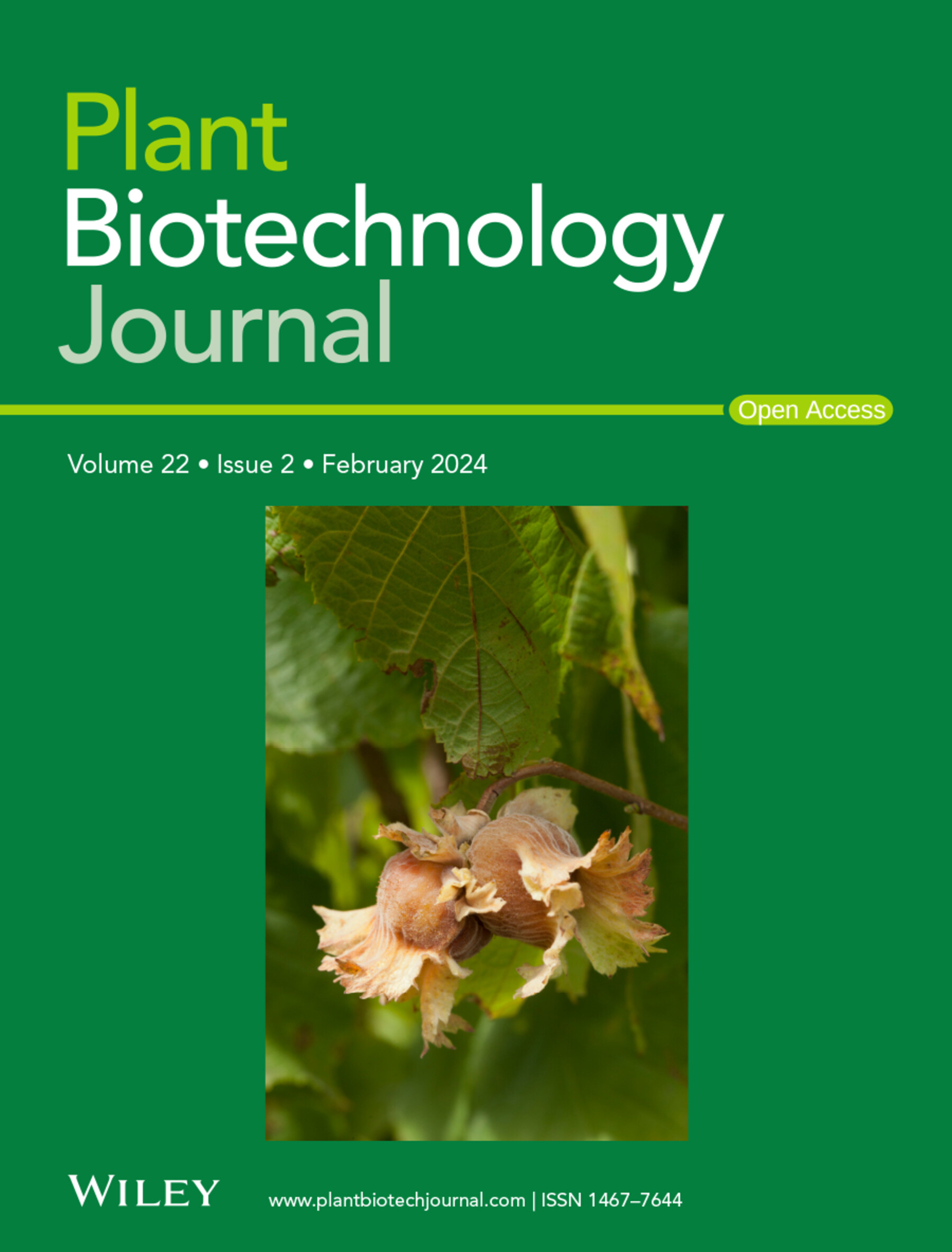Cell-Type-Specific and Variety-Specific Responses to Salt Stress in Wheat Root Revealed by Single-Cell Transcriptomics.
IF 10.5
1区 生物学
Q1 BIOTECHNOLOGY & APPLIED MICROBIOLOGY
引用次数: 0
Abstract
Soil salinization threatens the yield and quality of wheat. Roots are critical for the salt stress response, yet their cell-type-specific mechanisms remain unclear. We conducted the first single-nucleus RNA sequencing analysis of wheat root tips from salt-sensitive (CS) and -tolerant (DK) varieties under salt stress, profiling 188 270 high-quality root cells. Seventeen cell types were identified and validated using reported marker genes and reference atlases. Cell-type-specific analyses found that root hair cells exhibited the strongest association with salt stress, with variety-specific transcriptional changes potentially contributing to DK's superior salt tolerance. Comparative gene profiling of root hair cells highlighted that CS prioritized rapid stress signaling and osmolyte accumulation, whereas DK emphasized metabolic reprogramming and cellular repair mechanisms. Pseudotime analysis pinpointed TaGSTU1-5B as a key candidate for wheat salt tolerance, and it was validated as improving salt tolerance by mediating ROS scavenging by overexpression. Additionally, subgenomic analysis revealed that salt stress enhanced asymmetric expression of the homeologs in polyploid wheat roots, and A- and D-dominant homologs were more related to salt response. This study reports the first single-cell atlas of salt-stressed wheat roots, uncovering cell-type-specific and variety-specific salt responses, providing novel insights into the molecular basis of salt adaptation and tolerance in wheat.单细胞转录组学揭示了小麦根系对盐胁迫的细胞类型特异性和品种特异性响应。
土壤盐渍化威胁着小麦的产量和品质。根对盐胁迫反应至关重要,但其细胞类型特异性机制尚不清楚。研究人员首次对盐敏感(CS)和耐盐(DK)品种的小麦根尖进行了单核RNA测序,分析了188270个优质根细胞。使用报道的标记基因和参考图谱鉴定和验证了17种细胞类型。细胞类型特异性分析发现,根毛细胞与盐胁迫表现出最强的相关性,品种特异性转录变化可能有助于DK优越的耐盐性。根毛细胞的比较基因分析表明,CS优先考虑快速应激信号和渗透物积累,而DK强调代谢重编程和细胞修复机制。伪时间分析确定TaGSTU1-5B是小麦耐盐性的关键候选基因,并证实其通过过表达介导ROS清除来提高耐盐性。此外,亚基因组分析显示,盐胁迫增强了多倍体小麦根系同源物的不对称表达,A-和d -显性同源物与盐响应的关系更大。本研究首次报道了盐胁迫下小麦根系的单细胞图谱,揭示了细胞类型特异性和品种特异性的盐响应,为小麦盐适应和耐盐的分子基础提供了新的见解。
本文章由计算机程序翻译,如有差异,请以英文原文为准。
求助全文
约1分钟内获得全文
求助全文
来源期刊

Plant Biotechnology Journal
生物-生物工程与应用微生物
CiteScore
20.50
自引率
2.90%
发文量
201
审稿时长
1 months
期刊介绍:
Plant Biotechnology Journal aspires to publish original research and insightful reviews of high impact, authored by prominent researchers in applied plant science. The journal places a special emphasis on molecular plant sciences and their practical applications through plant biotechnology. Our goal is to establish a platform for showcasing significant advances in the field, encompassing curiosity-driven studies with potential applications, strategic research in plant biotechnology, scientific analysis of crucial issues for the beneficial utilization of plant sciences, and assessments of the performance of plant biotechnology products in practical applications.
 求助内容:
求助内容: 应助结果提醒方式:
应助结果提醒方式:


